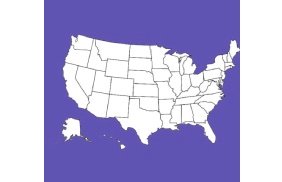California has officially, and for the first time, provided protections for users of recreational marijuana within the employment context. California Assembly Bill (“AB”) 2188, which takes effect on January 1, 2024, amends the Fair Employment and Housing Act (“FEHA”) by making it unlawful for an employer to discriminate against an applicant or employee for (1) the use of marijuana “off the job and away from the workplace” and (2) for an employer-required drug screening test that finds the person to have nonpsychoactive cannabis metabolites in their system.
Tetrahydrocannabinol (“THC”), a psychoactive cannabinoid, is the active chemical in cannabis that induces a high in the user. Non-psychoactive cannabis metabolites are the components that are stored in the body after the THC is metabolized and simply indicate that marijuana has been consumed sometime in the last few weeks.
Essentially, starting in 2024, AB 2188 prohibits employers from holding test results for non-psychoactive cannabis metabolites against an applicant or employee if all the test reveals is evidence of past marijuana use. The general intent of employment-related drug testing is to test for impairment on the job and/or at the worksite, not for long-term use. The California Legislature expressly states that the traditional and common tests for marijuana use (i.e., those that test for non-psychoactive cannabis metabolites) can no longer be used for pre-employment drug screening or be the basis for discipline or termination of an employee. However, applicants and employees can still be disciplined or terminated based on test results that show (1) present impairment and/or (2) the presence of the psychoactive chemical compounds of marijuana.
There are a few important exemptions to this new law. Specifically, AB 2188 exempts employees in the construction and building industries and those hired for positions that require federal background and clearance checks. Notably, AB 2188 does not exempt employees in other safety-sensitive industries such as transportation, health and services, manufacturing, and agriculture.
The law also explicitly states that nothing in the law permits an employee to possess, be impaired by, or use marijuana on the job. Moreover, all employers maintain the right to maintain a drug-free and alcohol-free workplace as provided under California Health and Safety Code section 11362.45(f).
AB 2188 is intended to highlight that testing for non-psychoactive cannabis metabolites in someone’s system (i.e., the well-known and current testing method), which can be in someone’s system for weeks after use, has no correlation regarding whether an employee is currently and/or actively impaired on the job. Therefore, starting in January, other testing methods need to be used that do not focus on the presence of non-psychoactive cannabis metabolites, but rather on the psychoactive components of marijuana in an individual’s bodily fluid and/or impairment tests against the employee’s baseline performance.
Impairment Tests
The California Legislature explained that a viable method for testing impairment of an employee on-duty and/or on a worksite is via an “impairment test.” The Legislature does not go into detail regarding the ins and outs of an “impairment test” however testing similar to those done for alcohol at a traffic stop could be helpful.
THC Tests For Active Psychoactive Components
The California Legislature highlighted that the science has improved and there are alternative drug tests, which identify the presence of recently consumed THC, such as in saliva. Therefore, an employer can and should test, upon reasonable suspicion, using methods that test psychoactive components of marijuana and not for the non-psychoactive cannabis metabolites.
The test currently recognized for this type of testing is the oral fluid test. However, those tests are relatively new and it is not clear how feasible it is to administer those tests in real-time. The question will be the balance between ensuring employee safety, retaining a qualified and diverse workforce, and complying with AB 2188. Hopefully, drug testing companies will see this as an opportunity to develop and refine a testing product currently missing from the market, but one that will be extremely useful for all California employers moving forward.
Revising Drug Policies and Testing
Pre-employment testing is necessary for maintaining a drug-free workplace, and ensuring both the safety of employees, and depending on the industry, the public. However, given AB 2188, California employers who are not statutorily exempt from the scope of the statute should revisit their drug screening policies, particularly as they pertain to marijuana, in hiring, discipline, and termination to ensure compliance. Employers should remove pre-employment marijuana testing policies that utilize the current common testing methods for non-psychoactive cannabis metabolites to avoid liability under FEHA. Employers may use testing methods that test the employee’s impairment at the time of the interview or while on-duty and/or test for the psychoactive component of marijuana. Employers should consult with their labor and employment counsel to ensure you are ready and prepared to comply with AB 2188 come the new year.
Conclusion
AB 2188 goes into effect on January 1, 2024, at which point, employers will be prohibited from engaging in any adverse employment action (i.e., changing the terms or conditions of employment such as a termination or refusal to hire) against employees for off-duty marijuana use. Thus, starting in the new year, how and when employers can test employees for marijuana use will drastically change and how and when employers can discipline employees for marijuana use will also change.
Originally published at JD Supra
https://www.jdsupra.com/legalnews/new-rules-for-california-employers-4434175/





